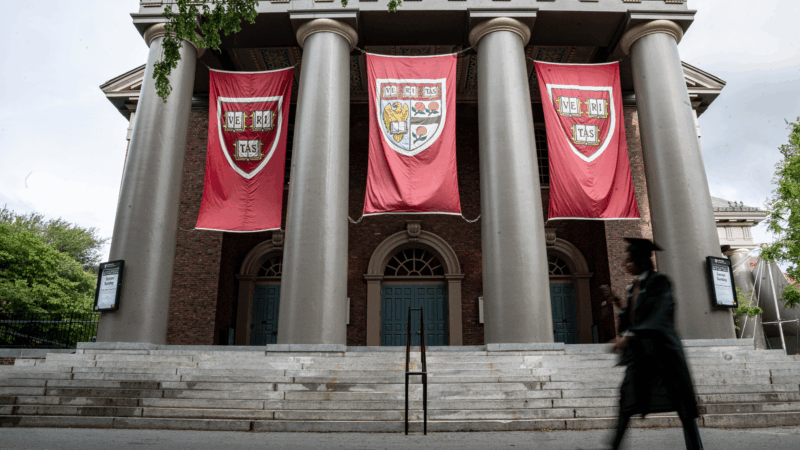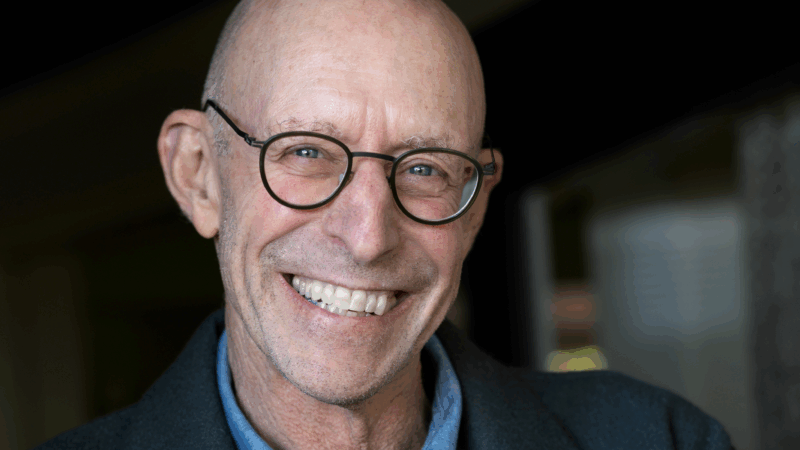Trump administration moves to cancel remaining federal funds to Harvard
The Trump administration is asking federal agencies to cancel their remaining federal contracts with Harvard University, worth an estimated $100 million, according to a government official.
A letter from the U.S. General Services Administration, which is dated Tuesday, tells agencies to submit a list of contracts they have terminated with the university by June 6.
“Going forward, we also encourage your agency to seek alternative vendors for future services where you had previously considered Harvard,” reads the letter, signed by Josh Gruenbaum, the commissioner of the GSA’s Federal Acquisition Service.
The government official, who did not want to be named because they were not authorized to speak, confirmed the authenticity of the letter, first published by the New York Times.
Harvard has not yet responded to NPR’s request for comment.
The battle between the Trump administration and Harvard University has been going on for several weeks. In April, the administration froze more than $2.2 billion in contracts and multiyear grants to the school in response to Harvard saying it would not comply with the administration’s demands that it drastically change its hiring, admissions and other policies.
In mid-May, a federal antisemitism task force wrote a letter telling Harvard it would lose an additional $450 million in grants from eight federal agencies, in addition to the $2.2 billion that was already frozen. That came in response to a letter the Harvard president, Alan Garber, sent to Linda McMahon, the U.S. secretary of education, denying the administration’s allegations that the school was partisan. He maintained the school was “not an arm of any political party” and would never be.
Harvard is suing to block the federal funding freeze. The university claims the administration’s moves are unlawful and that the cuts threaten academic freedom and First Amendment rights. A hearing has been scheduled for July.
Trump has also threatened the school’s tax-exempt status and last week, the administration revoked Harvard’s ability to admit international students. The next day, the school sued, and then a judge issued a temporary restraining order.
“We need to be firm in our commitments to what we stand for,” Garber told NPR’s Steve Inskeep in an interview on Monday. “And what we stand for – I believe I speak for other universities – is education, pursuit of the truth, helping to educate people for better futures.”
In response to allegations from the administration that the university has failed to protect Jewish students on campus, Garber said the school has made substantial and real progress over the past year.
R&B stars consider two ways to serve an audience
Two albums released the same day — Jill Scott's return from a long absence, and Brent Faiyaz's play for a mid-career pivot — offer opposing visions of artistic advancement in the genre.
Baby chicks link certain sounds with shapes, just like humans do
A surprising new study shows that baby chickens react the same way that humans do when tested for something called the "bouba-kiki effect," which has been linked to the emergence of language.
American Jordan Stolz speedskates to a third Olympic medal — silver this time
U.S. speedskater Jordan Stolz had a lot of hype accompanying him in these Winter Olympic Games. He's now got two gold medals, one silver, with one event to go.
Bad Bunny and J. Cole rule the pop charts
These days, the Super Bowl halftime show is a massive driver of the streaming, airplay and sales that fuel the Billboard charts. This week, Bad Bunny benefits from that influence.
Reporter’s notebook: My Olympic Lunar New Year
An NPR reporter covering the Olympics in Milan takes us on cultural side quests, to a hospitality house and a candy store.
Michael Pollan says AI may ‘think’ — but it will never be conscious
"Consciousness is under siege," says author Michael Pollan. His new book, A World Appears, explores consciousness on both a personal and technological level.








